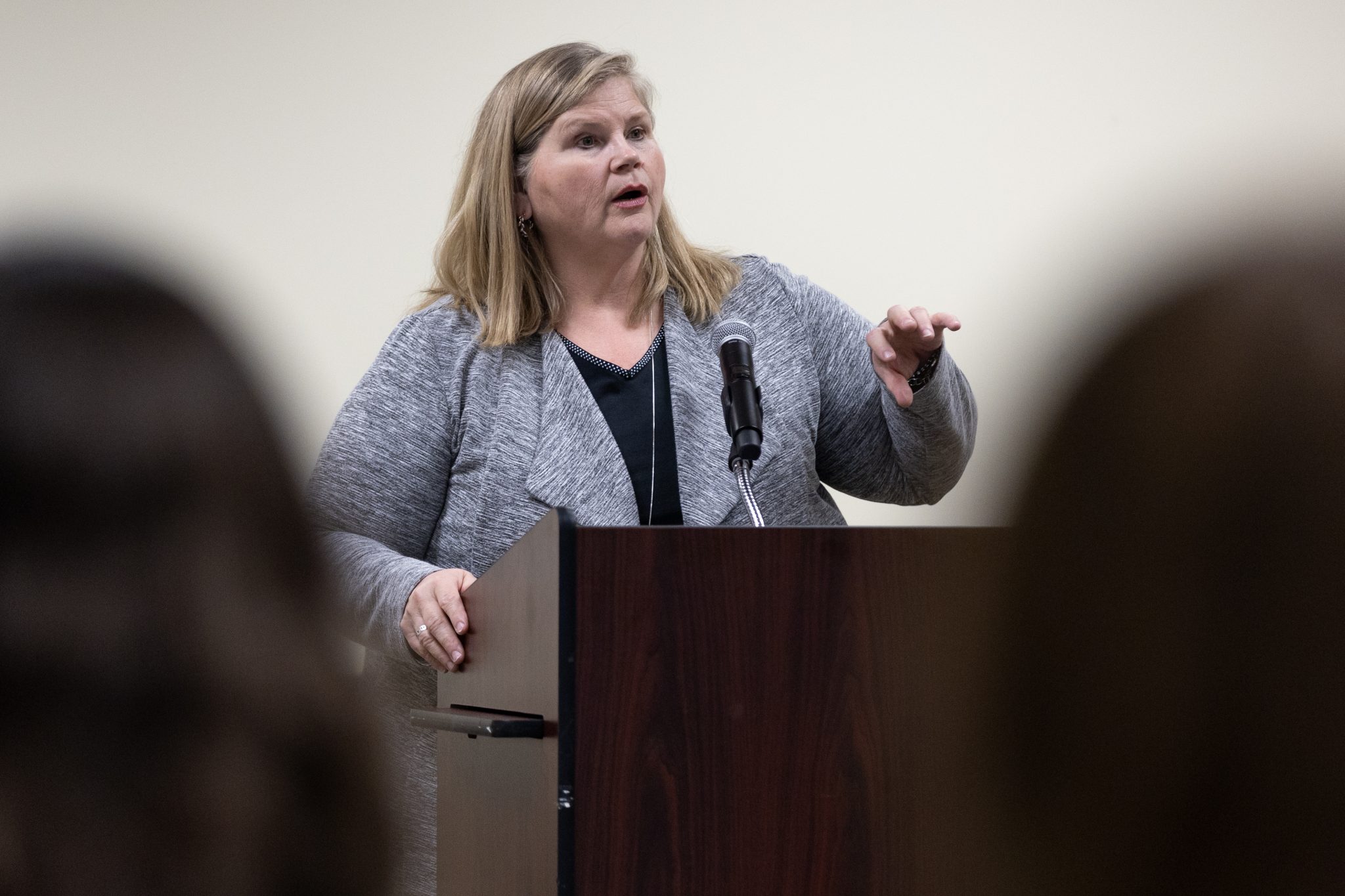University of Maryland student affairs vice president Patty Perillo discussed new mental health and food insecurity initiatives with RHA legislators Thursday.
Some updates included a mental health resource website, specialized positions in the student affairs division and contributions to the student crisis fund.
Perillo referred to a “post-COVID phenomenon” that impacts students’ education and causes loneliness. Students’ community and belonging needs are essential, Perillo said in her speech.
“More often than not, we hold the individual solely responsible for their mental health, and the truth of the matter is that the community has enormous responsibility,” Perillo told The Diamondback.
The student affairs division launched a new mental health website about two months ago that serves as a “centralized portal” for mental health resources, Perillo said in her speech.
Four months ago, the division also named Brian Watkins the first director of essential needs and services, Perillo said. Essential services refer to resources such as food and housing security, according to the student affairs division website.
[New UMD cafe in IDEA Factory promotes food entrepreneurship, innovation]
The division is searching for a physical space for its essential needs and services initiatives so students can receive financial counseling and academic advice in one spot, according to Perillo.
Residence Hall Association president Samantha Briggs said the essential services and needs team’s ability to provide students with necessary resources and connections stood out to her.
“Having a dedicated team to combat the issues that students face and help connect them with the people who can provide them with basic needs for success is great,” the senior government and politics major said.
A new first-generation coordinator in the student affairs division will provide support to first-generation students, who comprise nearly 20 percent of the student body, Perillo said. Many first-generation students face food or financial insecurity, Perillo said in her speech.
The student affairs division aims to stock the Campus Pantry, which provides food to students in need. The division is also working with federal and state agencies to provide assistance for students facing food insecurity, Perillo told The Diamondback.
[UMD RHA hopes to create inclusive dorm communities, bolster student turnout]
Perillo said the division will continue to contribute to the student crisis fund, which provides students experiencing “immediate financial need” with funds to purchase necessities such as food.
The student affairs division has also implemented an Initial Access Team that assesses whether a student needs “immediate and critical” mental health support, according to Perillo.
Some colleges offer counselors in buildings where students frequently have classes to “make greater connections” with students, Perillo said in her speech.
RHA is implementing a new mental health ad hoc committee this semester to program mental health resources in dorms and “combat the epidemic of loneliness,” Briggs, a senior government and politics major, said.
“Being one of the major governing bodies on campus, we have a special vantage point to be able to leverage policy and talk to administration to make sure that we’re benefitting the student body in the best way possible,” RHA vice president Michelle Ameyaw, a junior biological sciences major, told The Diamondback.



